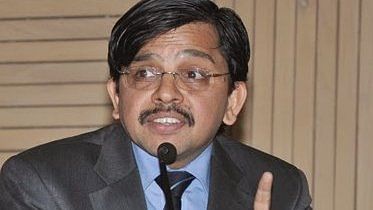New Delhi: The Supreme Court collegium had already cleared the transfer of Justice Muralidhar — the third senior-most judge in the Delhi High Court — on 12 February. This is what happened before his transfer was suddenly notified on the night of 26 February.
The first case
A bunch of cases had come to Justice Muralidhar’s court. The first was on the night of 25 February, when a petition was received at the High Court registry by a young lawyer called Suroor Mander. The petition said grievously injured victims were not able to reach Al Hind Hospital in Mustafabad in Northeast Delhi.
Usually, the registry does not accept petitions at this time, but in situations that are seen as emergencies, it makes exceptions. Normally this petition would have been sent to the Chief Justice, but he was on leave.
Because he was on leave, his number two, G.S. Sistani, marked the case to Muralidhar, who decided to hold the hearing in his home at about 12.30 am in the early hours of Wednesday, 26 February.
A bench including himself and Justice Anup J. Bhambhani ordered the Delhi Police to ensure safe passage of the injured victims by deploying all resources at its command. He then listed the case for further hearing and review for 2.15 pm, later that day.
The second case
At 12.40 pm on Wednesday afternoon, another petition is filed in the same court (by the same process described above), which demands an independent court monitored inquiry into the riots and registration of FIRs against Anurag Thakur, Kapil Mishra, and Parvesh Verma for delivering hate speech.
Justice Muralidhar gets furious when the police say they have not seen any clips of Kapil Mishra’s speech, and proceeds to play the clip in court. The court adjourned for lunch, and posted this case for a little later in the afternoon.
Incidentally, this petition was filed by Harsh Mander, who is the father of Suroor Mander. Apart from Muralidhar, the bench comprised Justice Talwant Singh.
The Thursday that never came
When the court returned after lunch, Suroor Mander’s case was heard once more, and Muralidhar said, “In this city, we shouldn’t allow another 1984, not under the watch of this court.”
He ordered that those who were dying and injured be allowed safe passage, that helpdesks be set up, police allow the safe passage of ambulances, and that shelters for displaced persons be set up.
After this, Harsh Mander’s petition on the FIRs came up, and he ordered the police to take a “conscious decision” on whether FIRs should be filed against the BJP leaders for their speeches. The matter was listed for Thursday.
However, Justice Muralidhar’s transfer was notified before the case could be heard further. At around 9 pm on Wednesday evening, the Government of India notified his transfer, meaning his job as a member judge of the Delhi High Court ended. This further meant that the case he had listed for Thursday would not come up before him, but before the chief justice.
The instructions Muralidhar had given the police, therefore, no longer stood. He had given the police till Thursday, but when the matter came up before the chief justice, he gave them 4 weeks — till 13 April. The police and the state made the argument that action cannot be taken against these speeches selectively.
The notification of Muralidhar’s transfer has drawn much criticism for its timing: Former Attorney-General Soli Sorabjee, for example, called it “stupid”.
You can watch the full episode of CTC here.




Judiciary has allowed itself to be captive of Executive most willingly. While Justice Murlidharan is quoted as having said the he will not allow another 1984 to take place under this court and his transfer to make it possible and show to those who believe that Judiciary can save the day. Since the day Modi came to power in 2014 his first job was to pass a bill make it an act which will allow Executive to manipulate the Judiciary which did not succeed. and in his second term he has made sure that despite that the Judiciary could be controlled and manipulated to which the Justices and Chiefs would not mind. Is it a match fixing with Judiciary and executive?
Gururaj means procedural delays are important than victims plea.
There are some major discrepancies here. Only a person who appears in courts can make them out. At night, the Registry of the court is closed. Where did Suroor Mander present the petition? Whom did she contact to see that the matter was referred to the senior most judge available? Next day, her father presents another petition seeking direction to file FIR against specified BJP leaders. The over enthusiastic judge gets carried away and hears the matter at 12.30 am. What an ungodly time to hear a petition, and give directions without hearing the other side! He could have directed the petitioner to approach the Police Commissioner and hear the matter in the open court next morning. Proceedings in the open court are always safe for the parties and also for the judge. If such prudence is not adhered to this kind of embarrassment occurs.
Arrogance and misplaced Sense of Infallibility.
Extremely good judiciary is controlled by corrupt BJP